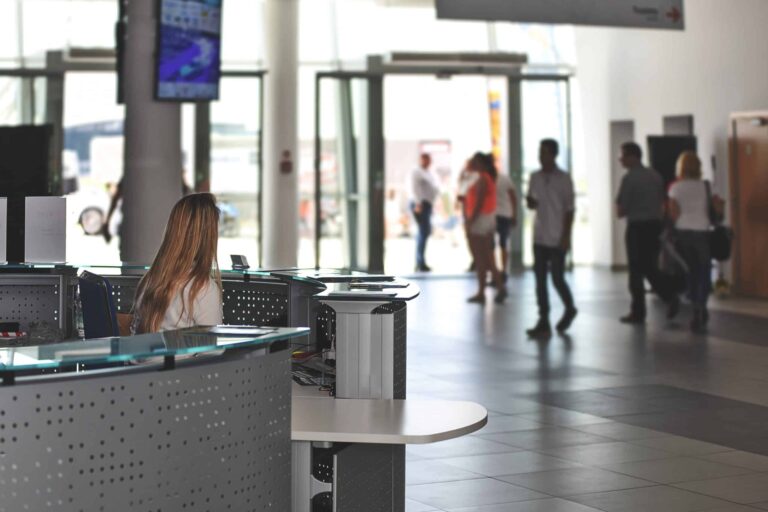Unique Aspects of Taking Online College Courses
Facts About Online College Programs
Knowledge is power and there is power is knowledge. How you choose to acquire new information is up to you and will vary depending on the value placed upon education. In terms of online college learning, we will cover a handful of important differences you will find versus a classroom-based college experience. While both can be incredibly effective and valuable, it will be your decision to determine which option is best for you.
Real Time and Multi-Modal Online Courses
Online college programs provide students with the opportunity to be online together in real-time as a class is happening. When students and professor are working together at the same time on the same material, this learning methodology is known as synchronous learning. By definition, when two or more things are working together in concert they are know to be in sync. The term synchronous learning makes more sense in this context as students can be online together, in a chat room at the same time, or instant messaging one another concurrently.
The opposite of synchronous learning is known as asynchronous learning. An asynchronous learning model is when students are not online at the same time nor connected when their professor is connected. In other words, a student has a high degree of flexibility to get online when it makes sense and get through the course material provided by the college. Obvious examples of asynchronous learning modalities are email, recorded lectures, recorded webinars, and online forums.
There are online college programs that blend synchronous learning with asynchronous learning methods. When methodologies are blended, there are times when everyone in class needs to be connected at the same time while the remainder of the time is punctuated by self-directed learning opportunities. Depending on the college and online course being offered, you may find benefit in the differing types of online learning models that are different than the classroom learning model.
Online Collaboration & Communication
Collaboration between classmates is part and parcel of how material is consumed when attending an online college class. In fact, open communication and the expectation to collaborate at a high level is often necessary to unearth solutions and share information among peer groups.
Students will often find working on a group presentation leads to different, novel information to be included in the presentation. This synergy is a natural part of working in groups with the college and university learning ecosystem being no exception.
In fact, effective communication and collaboration are lifelong skills used in school, work, and personal interactions everywhere. The better equipped we are with quality interpersonal skills, the better off we will be as lifelong learners and productive members of society.
Access to Different Learning Styles
The majority of online college courses offer digital textbooks that can be read on a variety of computer devices that may range from a desktop, laptop, tablet, or smartphone. In addition, there are several colleges that offer assignments via an audio file (think: podcast) giving students an extra level of flexibility.
More specifically, you can listen to a classroom assignment while riding the bus, driving to work, or exercising at the gym. This may seem like an innocuous addition to a curriculum offering but for those students that are auditory learners, audio learning is a game changer. It is this ready access to a variety of learning styles that support a wide array of learners that continue to make online college programs an exciting venue.
Information Flow for Online Learners
The internet allows for s free-flow of information to happen rapidly with very little friction. When this is applied to education, a curious student can easily check out the latest white paper, read a periodical, digest an online lecture, navigate topographical maps, read a professor’s latest blog, and participate in a classroom conversation in a private chat room while working from a local coffee shop. When juxtaposed with a college requiring students to be offline during class, it is not a stretch to think a population of student’s may struggle with the rigidity.
Online college students are often malleable and comfortable with a variety of learning modalities versus a singular type of communication. Online students are rarely captive or limited in the type of learning they engage in; rather, they are self-directed and knowledge seekers that are comfortable navigating the digital landscape in order to achieve the college degree of their choosing.
Engaged and Connected Online
From a social standpoint, a classroom-based college setting can be overwhelming to some students. We have heard from a number of students that elected an online college experience instead of a classroom as the latter created undue anxiety. For these specific students there can be an elevated amount of anxiety to: answer questions for their peers, present material on-the-spot, read aloud in front of the class, invest time trying to fit into the group, struggle with coordinating schedules outside class for a group project, and a number of other personal reasons.
While these activities do not adversely affect many students, they are real concerns for certain students. Students electing an online course have the opportunity to participate remotely and stay engaged in exciting material with far less social pressure. For additional resources, make sure to visit MatchCollege and subscribe to our blog for the latest in college information.






